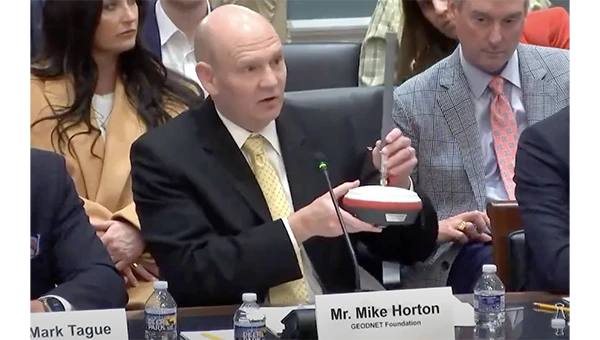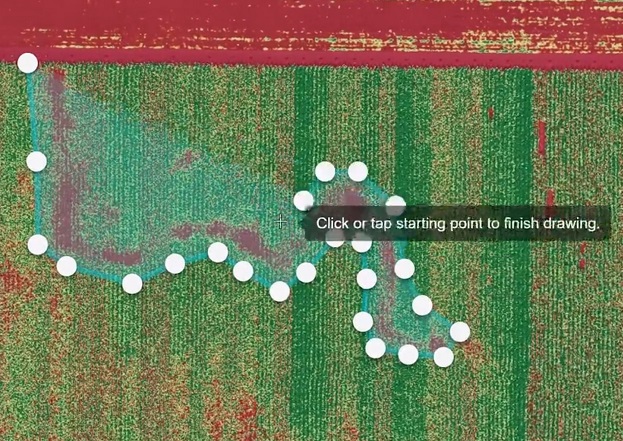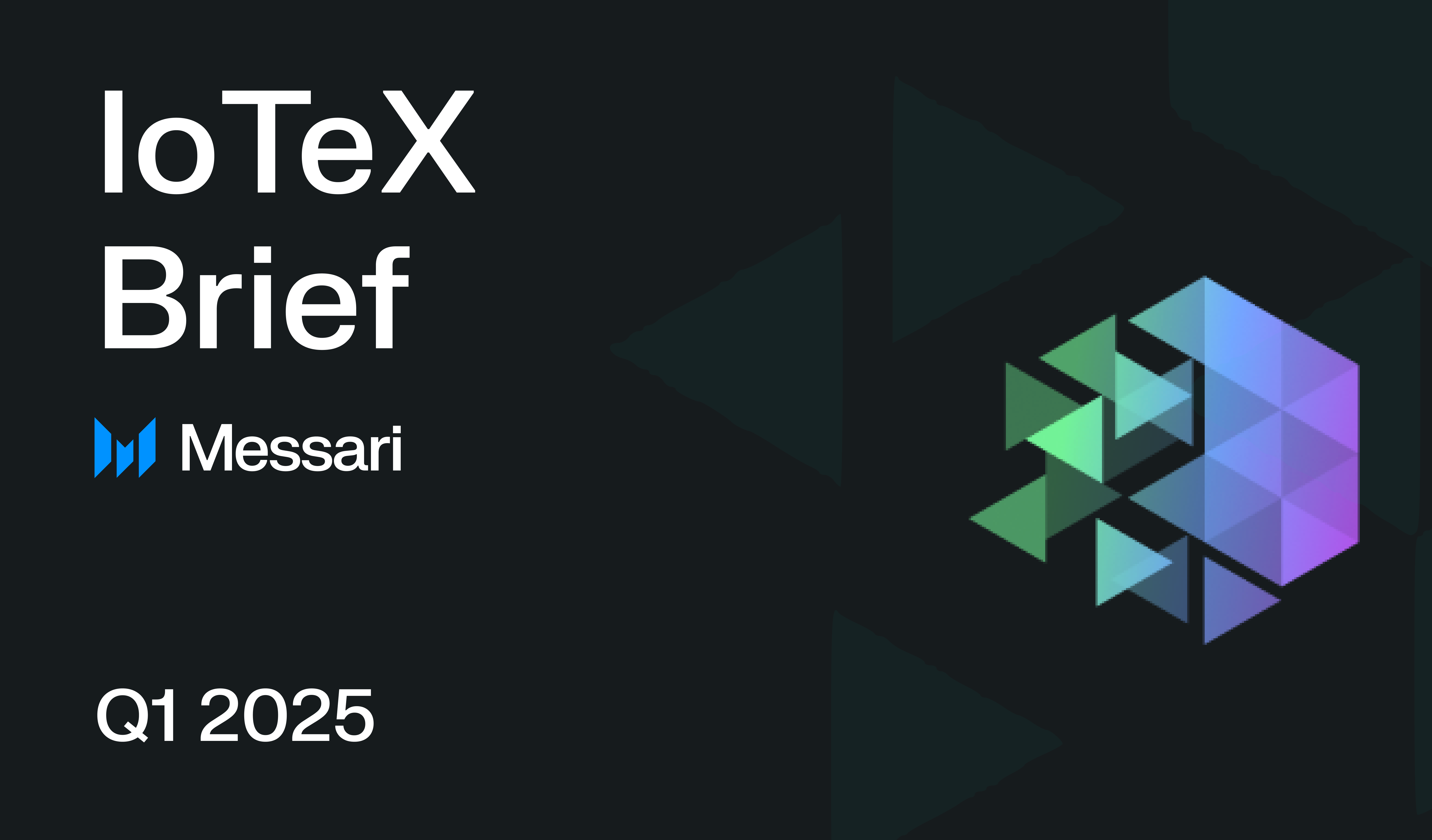Latest GEODNET News

10 days ago
IoTeX Launches Revolutionary On-Chain Identity Solution for Smart Devices
IoTeX has officially launched ioID, the world’s first on-chain identity solution specifically designed for smart devices. This innovative protocol addresses the growing need for secure and verifiable identities in the rapidly expanding market of smart devices, which are projected to outnumber humans by 2030. ioID empowers decentralized physical infrastructure networks (DePIN) to authenticate devices, safeguard data, and facilitate next-generation applications within a user-owned ecosystem that is compatible with any blockchain. This breakthrough is poised to revolutionize identity management for smart devices, allowing them to achieve self-sovereignty through smart contract wallets and private keys.
The ioID protocol introduces several key features that set it apart from traditional identity management systems. Firstly, it grants devices their own sovereign identity, enabling them to engage in on-chain activities independently of centralized intermediaries. Secondly, ioID's omnichain compatibility allows it to function across various blockchain platforms, making it suitable for a wide range of DePIN applications, from energy networks to smart wearables. Additionally, the protocol is designed to be tamper-proof and programmable, fostering innovation and interoperability among devices.
Since its testing phase began in early 2024, ioID has been integrated with over ten DePIN projects, including GEODNET and Network3. This integration allows IoTeX to refine ioID into a standardized solution that meets the diverse needs of developers in the DePIN space. According to IoTeX Co-founder and CEO Raullen, ioID bridges the gap between the physical and digital worlds, making trust and programmability core features of device interactions with blockchains. As a significant milestone for IoTeX, the launch of ioID not only enhances device ownership and control but also unlocks new opportunities in the DePIN sector, reinforcing the platform's commitment to a more transparent and fair digital ecosystem.

4 months ago
GEODNET Reports Strong Q2 2025 Growth and Strategic Expansions
In Q2 2025, GEODNET reported a remarkable 19% quarter-over-quarter revenue increase, rising from $812,000 to over $963,000, driven by the global expansion of its Real-Time Kinematics (RTK) station network. With annualized revenue approaching $3 million, GEODNET stands out in the Decentralized Physical Infrastructure Network (DePIN) sector, surpassing many of its competitors. The network now boasts over 19,000 active Satellite Miners across 145 countries, solidifying its position as the largest RTK network globally. Notably, GEOD token burns reached an all-time high of 3.8 million in Q2 2025, reflecting a 67% increase from the previous quarter, which further supports the network's long-term sustainability and value capture initiatives.
GEODNET operates on a decentralized model where individual operators set up RTK Base Stations, known as Satellite Miners, that capture satellite signals and provide real-time correction data with centimeter-level accuracy. The network's growth is attributed to strategic partnerships with companies like DroneDeploy and Quectel, enhancing its service offerings in enterprise drone mapping and IoT solutions. Additionally, GEODNET has implemented a 50% reduction in daily token commissions to mitigate inflation and support its contributors. The network's performance-based incentives introduced under the GIP-6 governance proposal are designed to improve data reliability while maintaining token supply discipline.
Looking ahead, GEODNET is poised for further expansion and technological advancements. Plans include integrating Low Earth Orbit (LEO) satellite tracking to enhance GNSS reliability, fusing RTK data with Inertial Measurement Units (IMUs) and LiDAR for precise positioning in challenging environments, and developing a custom RISC-V-based robotics chip for real-time sensor fusion. These initiatives will not only strengthen GEODNET's infrastructure but also position it as a leader in precision geolocation and decentralized systems for autonomous applications, ensuring continued growth and innovation in the coming years.

4 months ago
The Need for Regulatory Clarity in Decentralized Physical Infrastructure Networks
The recent passage of the GENIUS Act marks a significant milestone in the regulation of cryptocurrency in the United States, particularly focusing on stablecoins. This legislation establishes essential reserve rules, audits, and authorized issuers, setting a precedent for future regulatory frameworks. However, as the crypto landscape evolves, lawmakers must not stop here, especially with the burgeoning sector of decentralized physical infrastructure networks (DePINs) still lacking a legal framework. DePINs are not merely speculative ventures; they involve the construction of real-world infrastructure through community-owned hardware, enabling users to earn token rewards by contributing resources like antennas and sensors.
DePIN projects are already operational and scaling rapidly, generating impressive revenues. For instance, projects like Glow have exceeded $15 million in revenue, while Geodnet reports over $1 million in annual recurring revenue. Collectively, DePIN protocols are generating over $250 million in revenue, demonstrating their viability and value to users. However, unlike stablecoins, which now operate under defined federal rules, DePIN projects find themselves in a regulatory gray area. This lack of clarity exposes users, developers, and investors to potential risks, as existing laws do not adequately address the unique characteristics of DePINs, which rely on real-world data and infrastructure.
To foster the growth of DePINs, a tailored regulatory framework is essential. The GENIUS Act has shown that crypto regulation can support innovation without being restrictive. DePINs, existing at the intersection of hardware, software, and services, require specific definitions and standards regarding data ownership, privacy, and governance. Clear guidelines will not only build trust among users but also encourage investment and community participation. As DePIN continues to grow, it is crucial for Congress and regulators to recognize its potential to enhance infrastructure in underserved areas and to create a policy framework that prioritizes transparency, innovation, and user protection. The time for DePIN to be included in the regulatory conversation is now.

5 months ago
Exclusive Interview with Raullen Chai, Co-Founder and CEO of IoTeX
Exclusive Interview with Raullen Chai, Co-Founder and CEO of IoTeX
Raullen Chai, a Ph.D. in cryptography from the University of Waterloo and with prior engineering roles at Google, Uber, and Oracle, leads IoTeX. He envisions DePIN—decentralized physical infrastructure networks—connecting IoT devices and blockchain to empower users with data ownership. IoTeX 2.0 aims to cater to developers, enterprises, and consumers, bridging the gap with modular tools like W3bstream and token primitives.
Raullen discusses IoTeX's goal of onboarding 100 million devices in the next 3–5 years. The strategy involves partnerships with hardware manufacturers, community-led DePINs like DIMO and GEODNET, and empowering grassroots adoption. By expanding developer onboarding and scaling middleware, IoTeX plans to achieve this ambitious target.
Raullen highlights the importance of the 'Identity' layer in the DePIN reference architecture. He emphasizes the need for secure and interoperable machine identities to establish trust in decentralized physical systems. IoTeX's ioID provides devices with programmable identities, revolutionizing trust in DePINs.
W3bstream, a specialized solution for DePINs, focuses on verifiable real-world data ingestion. Unlike general-purpose off-chain compute solutions, W3bstream is tailored for handling physical-world inputs like sensor data and geolocation, bridging the gap between the physical and digital realms.
With ioID's NFT-bound smart contract wallets for machines, IoTeX addresses lifecycle events like hardware replacement and identity migration. By combining secure hardware enclaves and on-chain NFTs, IoTeX ensures auditable continuity and composable trust in device identities.

6 months ago
IoTeX: Transforming Everyday Machines into Income-Generating Assets
IoTeX is revolutionizing the way everyday machines, such as solar panels and GPS trackers, can generate passive income by turning them into valuable assets. Co-founder Jing Sun emphasizes that their platform is at the forefront of a new machine economy, where real-world devices connect to Decentralized Physical Infrastructure Networks (DePINs) to yield real financial returns. The vision for IoTeX was inspired by the Ethereum whitepaper, leading to the creation of a Layer 1 blockchain that links device data with AI models and traditional businesses. This innovative approach allows communities to contribute data from devices and earn rewards from AI firms, effectively merging the physical and digital worlds.
The concept of DePIN, which stands for Decentralized Physical Infrastructure Networks, is emerging as a promising real-world application of cryptocurrency. Sun describes it as "MachineFi," which refers to the financialization of machine data and resources. DePIN projects aim to crowdsource infrastructure that has traditionally been managed by governments or large corporations, providing coverage to underserved regions. Existing projects on IoTeX, such as GEODNET for GPS, Glow for solar energy, and Wingbits for flight tracking, are already operational and generating revenue, demonstrating the societal benefits of this model.
IoTeX's machine economy is accessible to everyone, allowing individuals to purchase and operate devices that collect data and sell it to networks in exchange for tokens. This model offers a form of basic income, empowering users to become operators of a diverse machine network. Traditional investors are also taking note, as DePIN's clear business model and revenue structures make it an attractive opportunity. With over 100 DePIN projects and a total locked value of $2.7 billion, IoTeX is poised to attract traditional investment into the crypto space. Looking ahead, the company aims to support the next generation of AI agents and smart devices, positioning itself as a leader in the integration of blockchain technology with everyday machines.

7 months ago
GEODNET Testifies Before Congress on Decentralized Infrastructure
On April 10, 2025, Mike Horton, the project creator of GEODNET, delivered a significant testimony before the U.S. Congress, representing both GEODNET and the broader Decentralized Physical Infrastructure Networks (DePIN) ecosystem. His presentation highlighted the transformative potential of blockchain-powered DePINs, which are already making strides in providing scalable and cost-effective infrastructure solutions across critical sectors such as internet connectivity, precision navigation, and renewable energy. This testimony marks a pivotal moment in the recognition of decentralized technologies by U.S. policymakers.
The growing acknowledgment from government officials underscores the increasing importance of decentralized technologies in addressing infrastructure challenges. Horton’s testimony not only showcased the achievements of GEODNET but also emphasized the broader implications for the DePIN ecosystem. The ability of these networks to deliver essential services efficiently and sustainably is a testament to the innovative capabilities of blockchain technology, which is gaining traction in various sectors.
This event serves as a proud milestone for those involved in the development of decentralized infrastructure. It acts as a powerful motivator for stakeholders committed to building the future of infrastructure through decentralized solutions. As the momentum behind these technologies continues to build, it is clear that the integration of blockchain into physical infrastructure is set to play a crucial role in shaping a more connected and sustainable future.

7 months ago
DroneDeploy Partners with GEODNET for Enhanced RTK Network Access
DroneDeploy, a leading company in aerial and ground reality capture, has announced a strategic partnership with the GEODNET Foundation, which operates a global real-time kinematics (RTK) network. This collaboration will provide DroneDeploy customers with access to all 10,000 registered stations within the GEODNET network. This access is particularly beneficial for precise drone surveying, underground utility documentation, and applications in construction, mining, energy, and utilities sectors. Furthermore, DroneDeploy plans to collaborate with its customers to establish GEODNET stations in regions that currently lack coverage, enhancing the network's reach and utility.
James Pipe, Chief Product Officer at DroneDeploy, emphasized the importance of this partnership, stating that while today's affordable enterprise drones are capable of sophisticated RTK and PPP survey-grade workflows, the high cost of accessing RTK base-station data has been a significant barrier. The integration with GEODNET aims to eliminate this hurdle, allowing users to fully leverage the advanced capabilities of their drones. The partnership is expected to enhance operational efficiency and accuracy in various applications, making it a significant step forward for both companies.
The GEODNET Foundation operates using decentralized physical infrastructure networks (DePIN) principles, which allows for a low-data rate network connection. This technology enables a remarkable 100-times improvement in positioning accuracy compared to traditional standalone GPS systems. Mike Horton, Project Creator at GEODNET, expressed pride in being selected by DroneDeploy for this integration, highlighting the potential for improved workflows and enhanced data accuracy in the industry. This partnership marks a significant advancement in the use of drone technology and RTK networks, paving the way for more precise and efficient operations in various sectors.

7 months ago
IoTeX Launches Quicksilver and Expands DePIN Ecosystem in Q1 2025
In the first quarter of 2025, IoTeX made significant strides with the introduction of Quicksilver, a decentralized physical infrastructure network (DePIN) module that enables AI agents to interact with real-world data. This innovative framework aims to enhance the capabilities of AI by allowing it to process real-time data and respond adaptively to its environment. Partnerships with GEODNET and Nubila have been established to integrate their devices with the ioID module, facilitating machine verifiability and verified data uploads onto the IoTeX blockchain. Despite a decline in average daily active wallets and transactions, the network still shows impressive year-over-year growth, with active wallets up 850% and transactions up 2,250% compared to the previous year.
The IoTeX Network operates on a modular infrastructure that combines an EVM-compatible Layer-1 blockchain with off-chain computing capabilities. Users can stake the native token, IOTX, to vote for delegates responsible for securing the network and validating transactions. In Q1, the total fees on the network decreased by 55% quarter-over-quarter to $201,000, primarily due to significant drops in gas and decentralized exchange (DEX) fees. However, the network's staking activity remained robust, with 120 active delegates securing 3.8 billion IOTX, representing 40% of the circulating supply.
IoTeX's commitment to innovation is evident in its ongoing development of the Quicksilver framework, which integrates AI with decentralized networks. The introduction of BinoAI, an autonomous AI agent, further exemplifies this effort, as it shares insights about DePIN projects on social media. Additionally, the partnerships with GEODNET and Nubila highlight IoTeX's focus on verifiability and real-world data applications, paving the way for future collaborations aimed at enhancing the DePIN ecosystem. As IoTeX continues to evolve, its emphasis on integrating AI and decentralized technologies positions it as a leader in the blockchain space, driving demand for DePIN solutions.

8 months ago
Traditional Investors Eye Decentralized Physical Infrastructure Networks for Growth
A recent report titled "The DePIN Token Economics Report" by Tom Trowbridge has shed light on the growing interest of traditional equity investors in Decentralized Physical Infrastructure Networks (DePIN). The report highlights how DePIN is revolutionizing real-world services such as Wi-Fi, energy, and computing. With over 1,000 projects and 3 million providers, DePIN has shown significant revenue traction, with hardware costs plummeting by 95% in recent years. Notably, Helium reported $350,000 in revenue for Q4 2024, while Geodnet achieved an annualized revenue of $3 million, showcasing the financial viability of these decentralized networks.
Traditional equity investors, who have historically been skeptical of token projects, are now recognizing DePIN as a promising investment avenue. The report indicates that this investor demographic is significantly larger than that of alt-coin investors, primarily due to DePIN's tangible services and impressive revenue metrics. The buy-and-burn mechanisms employed by various DePIN projects, such as Geodnet and Hivemapper, further enhance the appeal by linking revenue directly to token value. This financial model provides a clearer benchmark for investors, as evidenced by Geodnet's $500,000 revenue in Q4 2024, which supports price growth in its tokens.
Moreover, Trowbridge emphasizes the importance of simplicity in DePIN's token economics, suggesting that models should be straightforward to avoid confusion among investors. The report also highlights the necessity for transparency in the sector, especially in light of Helium's recent SEC charge for misleading investors. As DePIN continues to shift the narrative of cryptocurrency from speculation to utility, Trowbridge asserts that projects offering real-world services are scaling more rapidly and providing superior services at lower prices compared to their centralized counterparts. This shift could redefine the landscape of crypto investments, making DePIN a focal point for future growth in the industry.

8 months ago
Grayscale Updates Top 20 Crypto Projects for Q2 2025
Grayscale, the world’s largest crypto asset management company, has unveiled its updated list of the Top 20 potential crypto projects for Q2 2025. This latest list introduces three promising newcomers: Maple (SYRUP), Geodnet (GEOD), and Story Protocol (IP), while removing Akash, Arweave, and Jupiter. As the crypto market continues to experience volatility, Grayscale is strategically positioning itself to capitalize on emerging trends that could redefine the industry landscape.
According to Grayscale's Market Insights report, the first quarter of 2025 witnessed a decline in the cryptocurrency market, mirroring the downturn seen in tech stocks and other high-risk assets. Although Bitcoin's network activity remained stable, interest in meme coins, particularly within the Solana ecosystem, has diminished. Nevertheless, Web3 applications across DeFi, AI, and infrastructure sectors have collectively generated over $2 billion in revenue. Notably, Sui (SUI) has emerged as a leading smart contract platform, boasting rapid transactions and low fees without the need for additional scaling layers, currently holding just 3% of Grayscale’s Smart Contract Platforms index.
For Q2 2025, Grayscale is concentrating on three pivotal areas: Decentralized Physical Infrastructure (DePIN), Real World Assets (RWA), and Intellectual Property Tokenization (IP). The addition of Maple, Geodnet, and Story Protocol to the Top 20 list reflects this focus. Maple is a lending platform for institutional clients with a total value locked (TVL) exceeding $600 million, while Geodnet provides real-time positioning data across 130+ countries, generating over $3 million in monthly revenue. Story Protocol aims to tokenize the $70 trillion intellectual property market, attracting high-profile artists like Justin Bieber and BTS. However, Grayscale cautions that these assets are highly volatile and risky, particularly highlighting GEOD's lack of major exchange listings as a significant concern.
Signup for latest DePIN news and updates